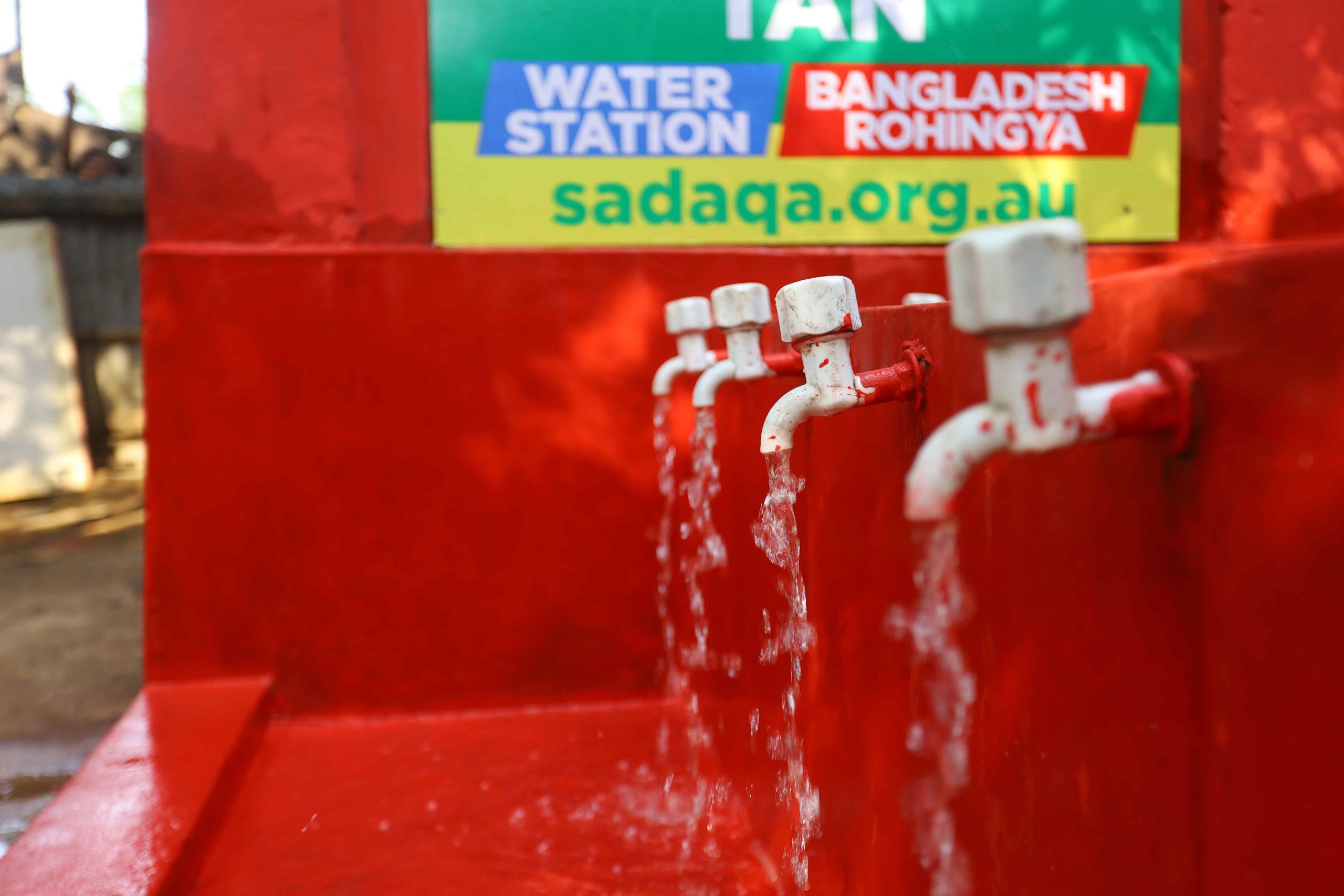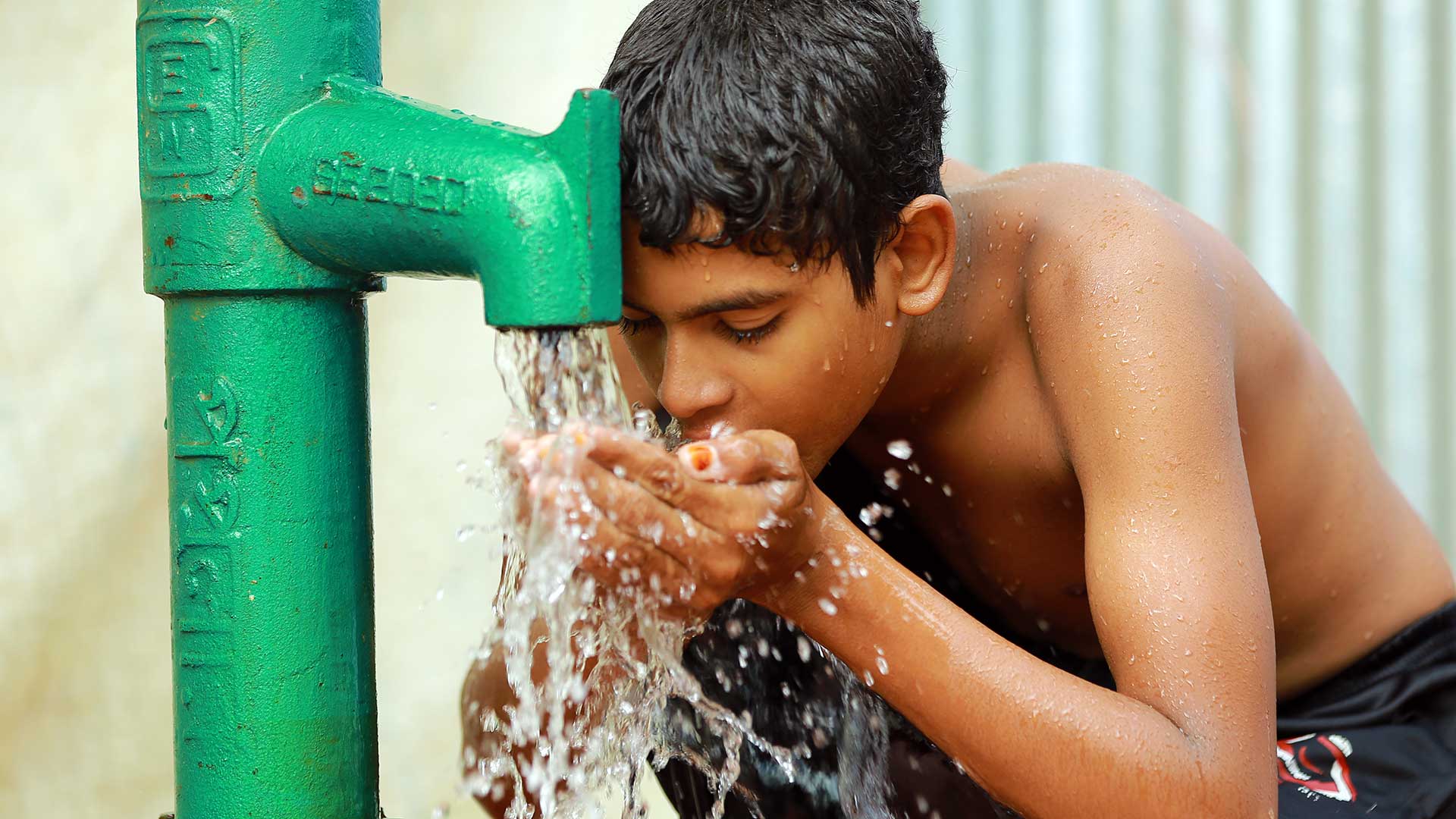Overview: The program involves the installation of 100 deep and 900 semi-deep water wells across various Upazilas in Jessore, Bogra, Sunamgonj, Kurigram, Pabna, Kushtia, Nilphamari, Dinapur, Rangpur, and Thakurgaon districts of Bangladesh. This initiative aims to strengthen social ties and provide clean and safe water to target beneficiaries, including those without access to pure water resources and public places such as educational institutions, religious sites, and markets. These tube wells will ensure safe drinking water and fulfill the requirement for clean water in daily life, helping to protect the health of the target population from various waterborne diseases.
Project Goal: To improve access to safe drinking water, enhanced sanitation, and hygiene practices among poor and marginalized communities in the targeted districts of Bangladesh.
Project Objectives:
- Increase access to sustainable safe water facilities for marginalized families.
- Improve the quality of life and health for people in rural areas.
- Raise awareness of hygiene promotion and reduce the prevalence of WASH-related diseases, including trachoma, Guinea worm, and diarrheal diseases, through the promotion of personal hygiene and environmental practices.
Beneficiary Number: 5000 Families and individuals 25,000 People
Donors: SWF-Australia, MGR-UK, Islamic Appeal-UK, Islamic Aid-UK, and NAHAR-USA
Project Duration: 1 Year
Project Components: Brick, Pipe, Sand, Tap, Filter, Water Well Head, Cement, and GI Pipe
Locations: Upazilas in Jessore, Bogra, Sunamgonj, Kurigram, Pabna, Kushtia, Nilphamari, Dinapur, Rangpur, and Thakurgaon districts of Bangladesh

Target Group of the Project: Poor and marginalized communities in the specified Upazilas, including public places like schools and markets, as well as isolated islands, coastal areas, and regions with water scarcity or contamination issues.
Selection Criteria for WASH Beneficiaries:
- Families and communities with limited or no access to safe drinking water.
- Areas with high prevalence of waterborne diseases.
- Public places like schools, religious institutions, and markets that lack safe water facilities.
- Communities affected by salinity, arsenic in groundwater, surface water contamination, and other water-related challenges.
-
Reporting & Documentation:
- High-quality photographs and videos will be taken at each event.
- All original vouchers and relevant documents will be preserved.
- Testimonials from local authorities will be collected and preserved.
- All events will be well-documented and published in electronic media.
- The donor’s logo will be used on banners and signboards for each activity.
- Completion reports will be sent with all vouchers, receipts, master rolls, photos, videos, and other relevant documents.
- Field survey reports and other documents requested by the donor will be provided.

Supervision & Monitoring: All project components will be consistently evaluated to measure effectiveness, efficiency, quality, usage, and acceptability. Problems, potential gaps, and required remedial actions will be identified through participatory assessment and evaluation. The overall supervision and evaluation will be conducted by dedicated staff. Monitoring and reporting will be carried out annually, with different reporting forms used for various activities. A compiled Management Information System (MIS) and financial statement will be prepared and submitted to donors. An annual report will be provided after each project year, along with an overall report upon project completion.
Potential Long-Term Impact: The project will significantly improve living conditions by providing safe and reliable access to drinking water, improving sanitation, and promoting better hygiene practices. This will lead to reduced prevalence of waterborne diseases, improved health, and enhanced quality of life for the target communities. The project’s impact will be sustained through continued maintenance and community engagement.
Sustainability: The project focuses on long-term sustainability by using durable materials for water wells and incorporating community involvement in maintenance and management. By educating communities about hygiene practices and involving them in the project’s implementation and upkeep, the benefits of the project will endure beyond the initial funding period.
Appeal for More Funds:
We urgently appeal for additional funding to expand our WASH program, which aims to provide safe drinking water, improved sanitation, and hygiene practices to marginalized communities in Bangladesh. With the generous contributions from SWF-Australia, MGR-UK, Islamic Appeal-UK, Islamic Aid-UK, and NAHAR-USA, we have made significant progress. However, the need remains great, and with your support, we can reach even more families in desperate need of these essential services.
Your additional funding will allow us to install more water wells, enhance sanitation facilities, and expand hygiene education programs, ultimately improving the health and well-being of thousands more individuals. Together, we can create lasting change and build healthier, more resilient communities.
Thank you for your commitment to this vital cause.

